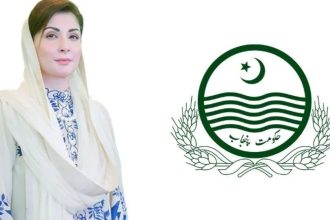The circular debt of power companies and the Pakistan International Airlines (PIA) has gone through the roof as the Pakistan State Oil (PSO) has to recover a staggering Rs.215 billion from them.
The Public Accounts Committee (PAC) was informed on Monday that out of the Rs215 billion, Rs128 billion were outstanding against the power generation companies, Rs 13 billion PIA while Rs56 billion was owed on account of interest and delay charges.
The PAC met with Syed Khursheed Shah in the chair to review audit paras relating to the Ministry of Petroleum and Natural Resources for the year 2010-11.
The PAC chairman summoned secretaries for finance, water and power to brief the committee on the circular debt and non-payment of dues of PSO.
The officials of the Ministry of Petroleum and Natural Resources told the committee that substandard diesel was being sold in the country and an improvement could not be made immediately as it was being imported from the Kuwait Petroleum under a long-term agreement.
They said only one company was selling diesel as per the international standards containing sulfur at the ratio of 0.05 percent. According to international standards, the ratio of 0.05 percent sulfur should be in diesel but it was around 0.7 percent to 1 percent, which was high.
The officials said the smuggled Iranian oil was substandard as it contained lead while Pakistan since 2002 had been refining lead-free oil. The audit officials told the PAC that on the extraneous pressure of the federal minister for privatisation and minister for finance and economic affairs in 2009, the Pakistan Petroleum Limited (PPL) made an irregular expenditure on an advertisement in an international journal “Foreign Affairs” in violation of the PPRA Rule 12 (2) and sustained a loss of Euros 140,000 (Rs 17 million) to the national kitty.
The officials of the Department of the Auditor General of Pakistan told the committee that the PPL contributed its share of Euro 28,000 along with PARCO, PSO, OGDCL and SNGPL to have an advertorial (advertisement + editorial content) published at the total cost of Euros 140,000 in Foreign Affairs.
The audit officials told the committee that the payment was made to the SML Strategic Media, USA, under extraneous pressure of federal ministers.
They said that on September 29, 2009, the PPL Board of Directors had approved the payment of Euros 140,000 (being the share of the PPL against total cost of Euros 70,000) for the said advertisement.
However, on the intervention of the Ministry of Petroleum and Natural Resources, the second approval was given on October 31, 2009 for an additional Euros 14,000, raising the amount to Euros 28,000 being the share of the PPL against the revised total cost of Euros 140,000.
The audit officials observed that the PPRA Rule 12 (2) was violated as the selection of the magazine was not done through a competitive process and the payment in Euros to a US-based firm made the deal suspicious.
Secretary petroleum and natural resources told the committee that the ministry had constituted a committee to ascertain the factual position and make recommendations within 60 days and the findings of the inquiry report would be shared with auditors.
While examining the audit paras relating to the Sui Northern Gas Pipeline Limited (SNGPL), the audit officials told the committee that the SNGPL sustained a loss of GDS due to higher line losses at 7 percent, a loss of Rs 2.86 billion was caused to the national kitty.
The audit officials told the committee that according to UFG manual published by theSNGPL in December 2002, the generally accepted industry standard for UFG is 3 percent to 6 percent, which is in line with the international standards.
The audit officials observed that the GD (Gas) could not present the true and fair position before Ogra in respect of 7 percent UFG as allowed by the Ogra in its decision on 15.10.2009 on a petition for the Final Revenue Requirement filed by the SNGPL for the year 2009-10.
They observed that the allowance was not in line with the benchmark prescribed in the UFG manual published by the SNGPL itself.
It is pertinent to mention here that the UFG allowance is not only the highest in the region but also contrary to the world’s accepted benchmark of 3-6 percent as well as 5 percent allowed for the previous year.
The audit officials were of the view that the excess allowance of UFG at 7 percent instead of 5 percent as for the previous year to the SNGPL resulted in the loss of GDS amounting to Rs 2.86 billion.
The PAC directed to discuss this issue again in the Departmental Accounting Committee and said it should be brought back before the committee for final decision.





